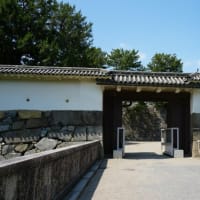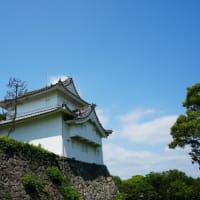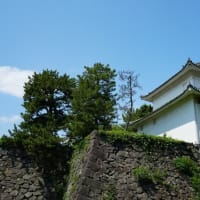The following is from an article by Katsumi Murotani in WILL, a monthly magazine now on sale, titled "If you don't like it, don't come," in which he argues that the overwhelming majority of public opinion in Japan does not want South Korea to come to the Tokyo Olympics.
He is one of the world's leading critics of Korea.
At the same time, he is also one of the "national treasures," as defined by Saicho.
Nevertheless, he is also one of the worst presidents in history, which his genuine article also reveals, Moon Jae-in.
It will convince every reader that his words and deeds are nothing but the outpouring of "abysmal evil" and "plausible lies."
The news programs of NHK and TV Tokyo reported the cancellation of the visit of such a person to Japan for the Tokyo Olympics as if the Japanese government had a problem with it.
Moreover, they did not report anything about the behavior of the Korean athletes who violated the Olympic Charter, which the IOC pointed out.
Are they even Japanese broadcasters?
These two stations frequently air Korean dramas and other such nonsense, and they are also friends.
Anyway, they hate Japan. They hate Japan so much that they can't help it. I don't want to see Japan being honored.
*I thought he wrote this about the true feelings of the editorial board of the Asahi Shimbun.*
If they can't stop Japan from standing on the spot of glory, let's smear the place with mud.
The South Koreans are coming to the Tokyo Olympics with all sorts of false accusations.
It is their mindset in a nutshell.
A Predictable Course
On September 8, 2001 (Japan time), at the International Olympic Committee (IOC) General Assembly held in Buenos Aires, Tokyo would be the host city for the 2008 Olympics.
It meant the failure of the first strategy to stop Tokyo, which South Korea had been secretly pursuing.
If this is the case, the second strategy will be to use false accusations to force Tokyo to cancel the Games if possible. If not, they will smear mud all over it.
From the moment it decided to hold the Olympics in Tokyo, it was a foreseeable course that South Korea would come up with all sorts of false accusations and say, "We will boycott!
Why does South Korea hate the Tokyo Olympics so much?
The most significant factor behind this is the "anti-Japanese spirit.
For more than 1,000 years, it has been accumulating in new fake histories added and overwritten.
The words and deeds that emanate from it are not light and soft minds that can be called "anti-Japanese consciousness.
"It is an entrenched mindset that embraces values such as "anti-Japan = absolute justice.
Whenever I make such an argument, a Japanese person starts by saying, "My friend in Korea is ......," puts on a "sensible face" and rushes out.
However, 'if a Korean friend of mine is pro-Japanese,' can that person change public opinion in Korea by saying, "I am pro-Japanese"?
He can't even state in public that "he is against anti-Japan."
To get a general understanding, we should start by accumulating a large number of public opinion and consciousness surveys, editorials in media with a large readership, and, in recent years, analysis of posts attached to articles distributed on the Internet.
Jealous, begging ATTACK!
I will back to the main point.
Along with the "anti-Japanese spirit," it is impossible not to mention the jealous nature of the Korean people.
It is a national trait that I became acutely aware of during my five years in Korea, where I ate and drank with Koreans almost every day.
Bullying in the workplace, which can be a characteristic of Korean corporate culture, is often triggered by jealousy.
"Bullying in the workplace is usually a tactic to isolate the other party by slander to the superior and make the other party come between the boss and the bully, alienating measure (called igandil), or ignoring the other party.
In this context, Korean diplomacy, which deploys "tattletale diplomacy" in the international community, schemes to separate Japan and the United States through bat-like behavior and propagates the idea that "Japan is isolated," seems to be a direct projection of Korean corporate culture.
"There is a saying on the peninsula, "If your cousin builds them a house, your stomach will hurt.
For Koreans, a close relative is an unconditional "begging" target. Therefore, when their begging is refused, they go around making false accusations.
Even if a close relative is willing to listen to their "begging," still it can't honestly congratulate them (or feel pain in their stomachs) when they achieve great success or stand on the stage.
From the signing of the Japan-Korea Basic Treaty in 1965 until then-President Lee Myung-bak's illegal landing on Takeshima (Korean name: Dokdo) and his insulting remarks to the Emperor shortly after that, Japan has listened to almost all of South Korea's begging.
In particular, the Democratic Party of Japan (DPJ) government of Prime Minister Yoshihiko Noda gave South Korea a currency swap of $70 billion. In formal terms, Japan can procure $70 billion from South Korea.
In reality, however, it is equivalent to providing South Korea with a $70 billion unsecured loan facility.
Japan went so far as to provide South Korea with a line of credit, and what South Korea did to Japan was to land on Takeshima illegally.
Is it that the South Korean president is an "ingrate" or that the Japanese Democratic Party administration was incompetent?
It should be seen as a joint effort of both parties.
The currency swap between Japan and South Korea ended without being renewed.
For South Korea, Japan is no longer the one to "beg."
The Park Geun-hye administration, which succeeded Lee Myung-bak's administration, has been engaged in what is known as "tattletale diplomacy," which is a form of defamatory diplomacy toward Japan, which is not surprising given the nature of the Korean people.
This article continues.

















